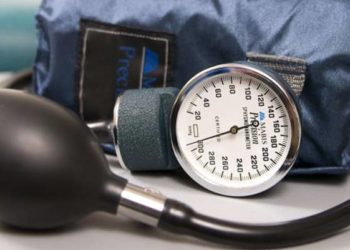Complex government-mandated sepsis performance measures not shown to improve survival
1. No moderate- or high-level evidence was found that SEP-1 or its hemodynamic interventions increase survival in septic adults.
2. The authors suggest that the CMS should evaluate its approval process to ascertain how interventions that are deficient in evidence were adopted and how improvements can be made to this process.
Evidence Rating Level: 1 (Excellent)
Study Rundown: In 2015, the Centers for Medicare & Medicaid Services (CMS) introduced the Severe Sepsis and Septic Shock Early Management Bundle (SEP-1) performance measure and started to observe hospitals for its completion. For a single patient, the SEP-1 involves up to 7 interventions by the clinician, and documentation may demand up to 141 tasks and 3 hours to complete. To avoid putting accreditation or CMS reimbursement at risk, providers must adopt this protocol. However, there are concerns that the SEP-1 or its hemodynamic interventions do not have moderate- or high-level evidence indicating that they increase survival in septic adults. The authors of this systematic review examined whether or not there was such evidence available. After evaluating 20 studies meeting inclusion criteria, the authors found that there was no moderate- or high-level evidence indicating that SEP-1 or its hemodynamic interventions increase survival in septic adults. The authors suggest that the CMS should evaluate its approval process to ascertain how interventions that are deficient in evidence were adopted and how improvements can be made to this process.
One strength of the study is that it summarizes data addressing concerns regarding lack of evidence for SEP-1’s interventions. Limitations of the study included the low availability of trials, lack of studies that include survival outcomes for bedside cardiovascular ultrasonography or focused examination, and studies that were of poor quality or were confounded.
Click to read the study in Annals of Internal Medicine
Click to read an accompanying editorial in Annals of Internal Medicine
Relevant Reading: The government mandated severe sepsis and septic shock early management bundle performance measure (SEP-1) is not evidence based
In-Depth [systematic review]: The authors searched PubMed, Scopus, Embase, ClinicalTrials.gov, and Web of Science up to 28 November 2017 for any moderate- or high-level evidence indicating that SEP-1 or its hemodynamic interventions improved survival in septic adults. Of 56 563 references, there were 20 studies fitting inclusion criteria. Fifteen of these were observational studies, which may be subject to selection bias. One observational study from a single center reported decreased mortality in the hospital after beginning SEP-1 use. Sixteen studies (14 observational, 2 randomized) reported better survival with 30-mL/kg fluid infusions or serial lactate measurements, which are part of SEP-1. Of these 17 studies, none had low risk of bias or lacked confounders. Of 3 randomized trials, survival remained unchanged with fluid responsiveness testing. No contraindications were found for using hemodynamic interventions. The authors suggest that providers may find these interventions to be beneficial for certain patients. However, there was no evidence that these interventions should be used on all patients. The authors expressed concerns that applying SEP-1 to all patients may harm patients that do not need such treatments and may also result in using finances and personnel that may be better used towards other therapies shown to be more effective for septic patients.
Image: CC/Wiki
©2018 2 Minute Medicine, Inc. All rights reserved. No works may be reproduced without expressed written consent from 2 Minute Medicine, Inc. Inquire about licensing here. No article should be construed as medical advice and is not intended as such by the authors or by 2 Minute Medicine, Inc.








